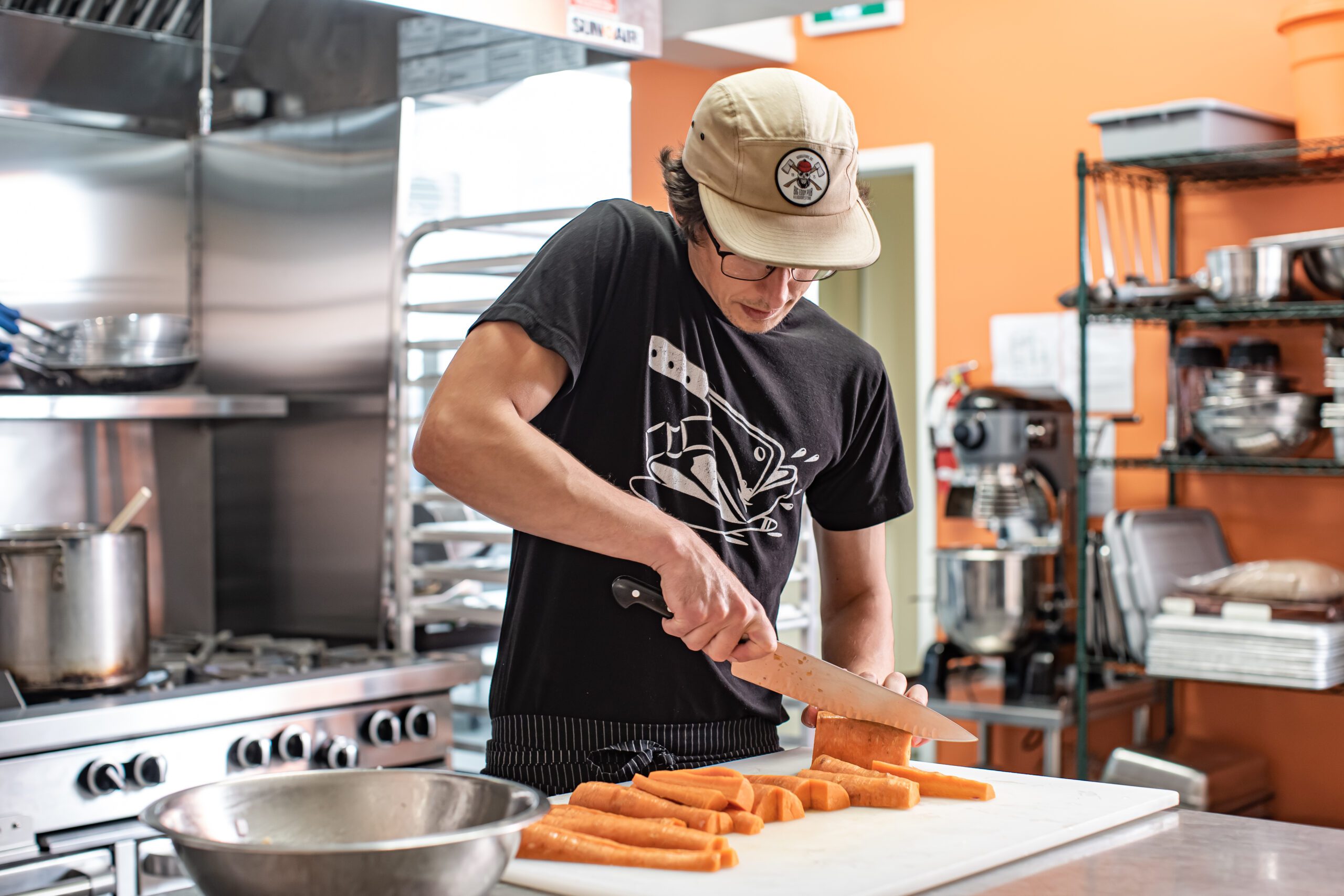More than 30 organizations have come together in the rural mountain town of Revelstoke to ensure access to nutritious local food. Among them is the Community Connections (Revelstoke) Society which delivers professional social services to individuals, groups, and families, and operates the local food bank.
The Revelstoke Food Security Strategy, created in 2014 and updated in 2022, identifies value-added food production as an undeveloped opportunity for the region. Research showed more than 12 emerging food businesses that needed flexible and affordable production space with optional access to on-site storage. An incubator kitchen was a highly viable solution.
In the fall of 2021, Community Connections successfully applied to ETSI-BC through its Building Economic Development Capacity Funding Stream, to obtain seed money for the kitchen’s first year of operation. The program supports smaller/rural communities in building economic development capacity and cultivating regional partnerships.
“At ETSI-BC, we know that sometimes a community needs a first-in funder to seed projects and encourage other funders to come on board,” says Laurel Douglas, CEO.
The facility leases out space that is certified for food production and users can access additional services related to food education and training provided through Community Connections by other agencies. “Most users are aiming to build or enhance their small-scale businesses and sell their products through local retailers and farmers’ markets,” says Melissa Hemphill, Food Security Coordinator at Community Connections.
An earlier feasibility study was conducted prior to the pandemic, but it did not reflect inflationary trends such as the increasing cost of living in Revelstoke and the ever-increasing cost of food. As a result, there was less interest in renting the kitchen than originally expected. Community Connections adapted by revising its business model to create more diverse revenue streams for the organization.
The kitchen incubator operates as a social enterprise, providing space and services for critical in-house programming, and the growing food production industry. Austin Luciow, a Red Seal Chef is contracted as full-time Kitchen Manager responsible for developing, marketing, and managing the facility, and working with renters to access Community Connections’ other support programs.
Since the kitchen began renting out space in June 2022, it has assisted seven food businesses, catered 10 local community programs and events, created products for public sale at its outreach building, and hosted food literacy workshops on such topics as cheese making, chicken butchering and preserving gleaned local fruits.
Other contributions to the local economy include the fact that Community Connections has invested over $16,000 in local services including photography, logo development, website updates and creation of a marketing strategy and marketing materials. In addition to the Kitchen Manager, 10 part-time employees have been hired by renters of the space.
One notable example is a local bakery specializing in allergen-free treats that was able to increase their production four-fold, access business loans and hire three part-time staff. A second baker specializing in German treats saw unexpected growth due to the productivity possible in the kitchen space and plans to hire an employee to help keep up with demand. That business has also been able to invest in specialized equipment for a unique mobile offering.
Community Connections also partners with Indigenous clients and the Indigenous Friendship Society of Revelstoke to create traditional foods and host workshops on Indigenous Food Sovereignty. And thanks to a GoFundMe campaign started by local First Light Farm to raise donations for the food bank, a variety of fresh local food is among the food bank’s offerings.
“With the support of ETSI-BC and other partners, the kitchen is creating new opportunities for early-stage entrepreneurs who can’t do it all on their own,” says Hemphill. “At the same time, we’re increasing the number of food manufacturers in the area while building the food system and supporting food security.”


